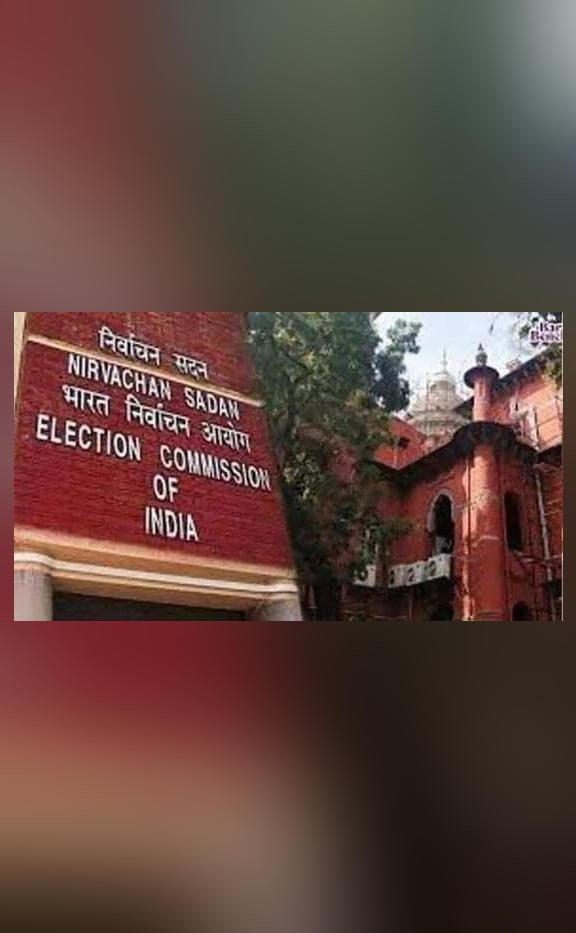
Aadhaar, Voter ID & Ration Cards Can’t Be Considered for SIR: ECI
In a recent development, the Election Commission of India (ECI) has rejected the Supreme Court’s suggestion to accept Aadhaar, voter ID, and ration cards as standalone proof of voter eligibility in the ongoing special intensive revision (SIR) of Bihar’s electoral roll. This decision has sent shockwaves across the country, sparking concerns about the effectiveness of the electoral process.
The ECI’s decision was made public on Monday, and it has been met with mixed reactions from political parties and civil society organizations. While some have welcomed the move, others have expressed disappointment and frustration.
For the uninitiated, the SIR is a process that is carried out by the ECI to revise the electoral roll and ensure that all eligible citizens are enrolled as voters. The SIR is a critical exercise, as it helps to ensure the integrity and credibility of the electoral process.
In recent times, there have been concerns about the accuracy and completeness of the electoral roll. The ECI has been working to rectify these issues, and the SIR is an important step in this process.
So, what led to the ECI’s decision to reject the Supreme Court’s suggestion? According to reports, the ECI has been of the view that Aadhaar, voter ID, and ration cards are not sufficient proof of voter eligibility. The commission has emphasized that these documents are not unique identifiers, and they can be easily misused or duplicated.
The ECI has also pointed out that the Supreme Court’s suggestion would have created additional bureaucratic hurdles and would have been impractical to implement. The commission has stressed that the electoral roll is a complex document that requires a thorough verification process to ensure its accuracy and integrity.
Another important aspect of the ECI’s decision is its statement that a person’s citizenship will not terminate on account of not being part of the electoral rolls. This clarification has been made in response to concerns that the SIR might lead to the de-enrolment of citizens who are not eligible to vote.
The ECI’s decision has been welcomed by some political parties, who have expressed relief that the commission has not accepted the Supreme Court’s suggestion. However, others have criticized the decision, arguing that it is undemocratic and will lead to disenfranchisement.
For example, the Congress party has slammed the ECI’s decision, saying that it is a “blow to democracy.” The party has argued that the SIR should have been carried out in a more transparent and inclusive manner.
On the other hand, the Bharatiya Janata Party (BJP) has welcomed the ECI’s decision, saying that it is a “step in the right direction.” The party has argued that the electoral roll is a critical document that requires a thorough verification process to ensure its accuracy and integrity.
The ECI’s decision is also significant in the context of the ongoing debate about the use of Aadhaar as a proof of identity. There have been concerns about the use of Aadhaar as a proof of identity, with some arguing that it is not a reliable method of verification.
The ECI’s decision has also sparked concerns about the potential impact on marginalized communities. For example, the decision may affect the enrollment of citizens who do not have access to traditional forms of identification, such as voter ID cards or ration cards.
In conclusion, the ECI’s decision to reject the Supreme Court’s suggestion to accept Aadhaar, voter ID, and ration cards as standalone proof of voter eligibility is a significant development in the ongoing SIR of Bihar’s electoral roll. While some have welcomed the decision, others have expressed disappointment and frustration.
The ECI’s decision has highlighted the importance of ensuring the accuracy and integrity of the electoral roll. It has also emphasized the need for a thorough verification process to ensure that all eligible citizens are enrolled as voters.
As the SIR continues, it is essential that the ECI and other stakeholders work together to ensure that the electoral roll is accurate and complete. It is also critical that the ECI provides clear guidelines and procedures for the verification process to ensure that all eligible citizens are enrolled as voters.






